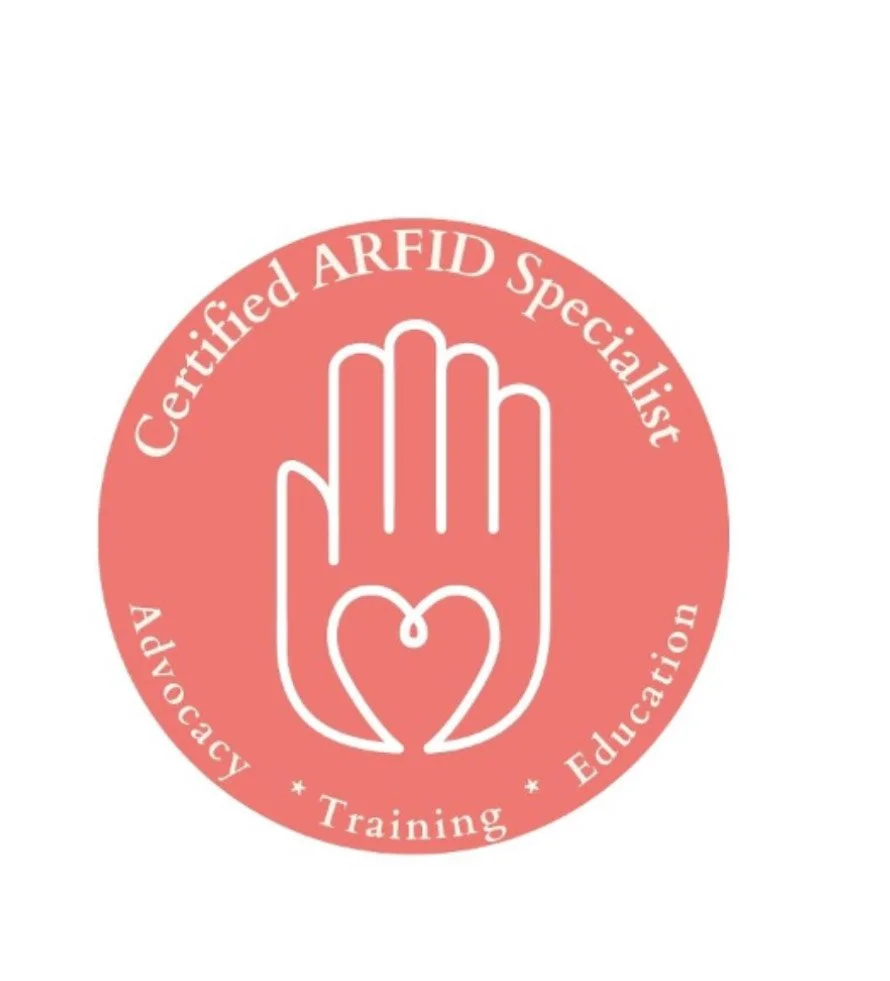Virtual Nutrition Counseling for ARFID Recovery
Compassionate support from a Certified ARFID Specialist—available virtually in FL, CO, AZ, MI, SC, CA, VA, and OR.
What is ARFID?
Avoidant/Restrictive Food Intake Disorder (ARFID) is a serious and often misunderstood eating disorder. Unlike other eating disorders, ARFID isn’t driven by a desire to lose weight or change body shape. Instead, it’s marked by extreme food avoidance or restriction due to fear, low appetite, or sensory sensitivities. Left untreated, ARFID can lead to nutritional deficiencies, anxiety, poor growth, and serious health consequences.
Jamie, a Certified ARFID Specialist, offers virtual nutrition counseling for children, teens, and adults with ARFID throughout the states of FL, CO, AZ, MI, SC, CA, VA and OR. Her approach is gentle, individualized, and grounded in clinical expertise.
Recognizing the Signs and Symptoms of ARFID
ARFID often begins in childhood, but it can continue into or emerge during adolescence or adulthood.
Signs may include:
Eating a very limited variety of foods (often “safe foods” only)
Avoidance of foods based on texture, smell, color, or temperature
Intense fear of choking, vomiting, or food-related illness
Little interest in eating or chronic low appetite
Mealtime anxiety, distress, or refusal to eat
Nutritional deficiencies (e.g., low iron, vitamin D)
Weight loss or difficulty gaining weight/growing
Dependence on supplements, meal replacements, or tube feeding
Understanding ARFID Subtypes
ARFID doesn’t look the same for everyone.
Most individuals fall into one (or more) of the following subtypes:
Sensory-Avoidant
Avoids foods based on texture, smell, taste, appearance, or temperature (e.g., only eating crunchy or beige-colored foods).
Fear-Based
Avoids eating due to fear of negative consequences like choking, vomiting, or allergic reactions—even if no medical issue is present.
Low-Interest/Appetitie
Has minimal interest in eating or forgets to eat, often describing food as unappealing or unimportant.
Virtual Eating Disorder Support throughout the US
-

Florida
Miami, Orlando, Tampa, Jacksonville, Tallahassee, Gainesville, Sarasota, Naples, West Palm Beach, Fort Lauderdale
-

Colorado
Denver, Boulder, Colorado Springs, Fort Collins, Aurora, Lakewood, Arvada, Littleton
-

Arizona
Phoenix, Scottsdale, Tucson, Mesa, Tempe, Chandler, Gilbert, Flagstaff
-

Michigan
Detroit, Ann Arbor, Grand Rapids, Lansing, Kalamazoo, Traverse City, Flint
-

South Carolina
Charleston, Columbia, Greenville, Myrtle Beach, Hilton Head, Spartanburg
-

California
Los Angeles, San Francisco, San Diego, Sacramento, Oakland, San Jose, Santa Monica, Orange County
-

Virginia
Richmond, Norfolk, Virginia Beach, Arlington, Alexandria, Charlottesville, Fairfax
-

Oregon
Portland, Eugene, Salem, Bend, Corvallis, Medford
Why Work with a Certified ARFID Specialist?
Jamie is a Certified ARFID Specialist, one of the few providers in Florida with advanced training specifically in Avoidant/Restrictive Food Intake Disorder. This certification reflects her deep knowledge of ARFID’s unique challenges across all age groups including sensory sensitivities, fear-based avoidance, and chronic low appetite.
Her approach is grounded in empathy, collaboration, and evidence-based strategies. Jamie understands that ARFID isn’t about “being difficult” with food, it’s about survival strategies that deserve respect, not shame. By working with Jamie, you or your child will be met with curiosity, not pressure—and will receive care that’s tailored, trauma-informed, and genuinely supportive.
For Parents of Kids and Teens with ARFID
If you’re a parent feeling frustrated or scared about your child’s eating, you’re not alone. ARFID can make everyday meals feel like a battleground, but it’s not your fault, and there is help.
Jamie offers specialized ARFID support for kids and teens, helping them gradually expand their diets in a pressure free, empowering way. She also works closely with parents to reduce mealtime stress, build routines, introduce mindful eating practices, and foster curiosity around food.
For Adults with ARFID
Living with ARFID as an adult can feel isolating and overwhelming—especially if your struggles have never been validated. Jamie provides a compassionate, nonjudgmental space to unpack your food history, address fear or sensory issues, and work toward more nourishing, flexible eating.
Whether you're starting fresh or revisiting old challenges, Jamie helps adults with ARFID:
Expand their list of safe foods
Reduce anxiety and shame around eating
Improve nutrition and energy
Navigate social situations involving food
Feel more confident and empowered
Frequently Asked Questions
-
Jamie’s treatment model is rooted in trauma-informed, evidence-based care and may include:
Nutrition counseling and education
Food chaining and sensory exploration
Exposure-based interventions
Parent coaching and meal support
Collaboration with therapists, doctors, and treatment teams
She believes in meeting each client where they are, building trust first, then gently working toward new goals.
-
No. If your child is showing signs of ARFID or struggling significantly with food, they can benefit from support regardless of diagnosis.
-
Yes! Jamie often partners with other providers as part of a collaborative treatment team.
-
Treatment is highly individualized. Some clients benefit from short-term support, while others need ongoing care. Jamie will work with you to set realistic goals and timelines.
-
Jamie is out-of-network but can provide superbills for reimbursement, depending on your plan.
-
Yes! Virtual care is highly effective for ARFID treatment, especially when sessions are led by a Certified ARFID Specialist. Jamie uses secure video sessions to offer the same evidence-based support, food exposure guidance, and family coaching you’d receive in person, all from the comfort of your home.
-
Virtual sessions eliminate the need to travel or rearrange your day to make it to an office. Whether you're managing a busy family schedule, live in a more remote part of Florida, or simply prefer the privacy of being at home, virtual care makes it easier to stay consistent with treatment.
-
All you need is a smartphone, tablet, or computer with a camera and a reliable internet connection. Sessions are conducted through a secure, HIPAA-compliant platform that’s easy to use.
Getting Started
Ready to take the first step toward healing your or your child’s relationship with food? Jamie offers virtual ARFID nutrition counseling across FL, CO, AZ, MI, SC, CA, VA, and OR.
Schedule your free 15-minute consultation to see if working together is the right fit.





